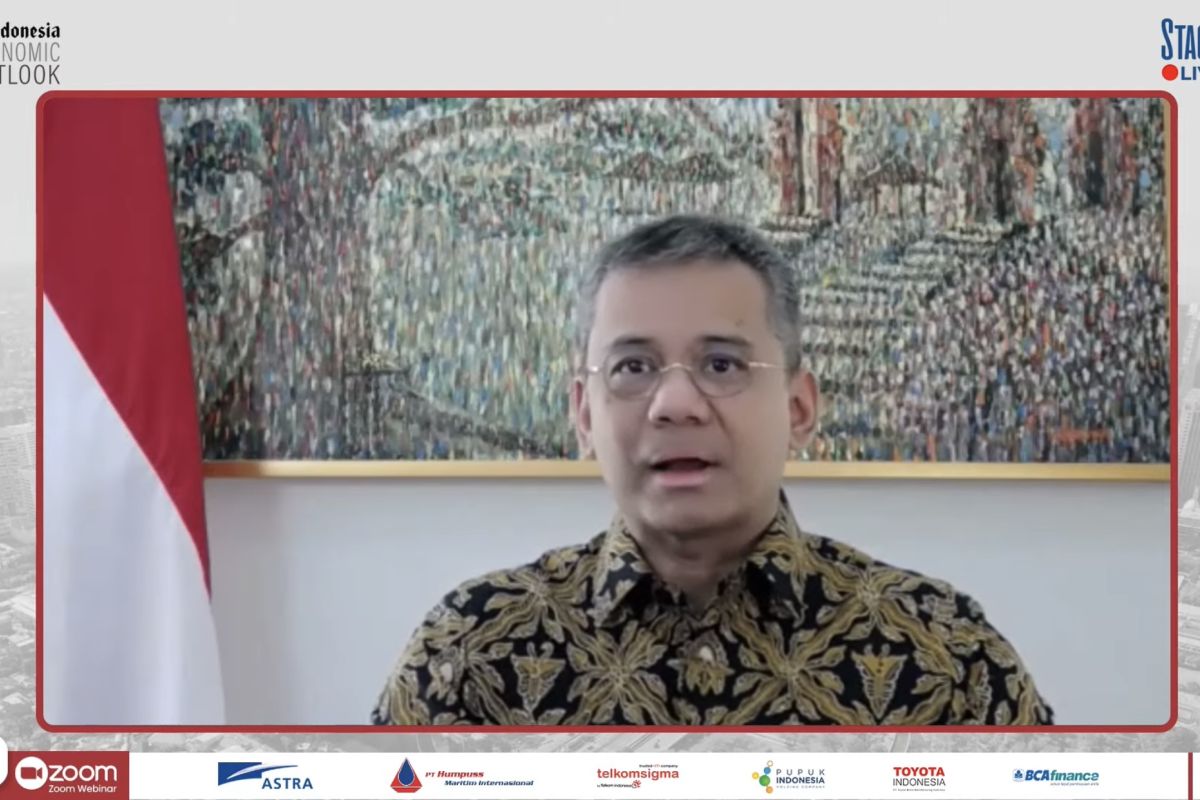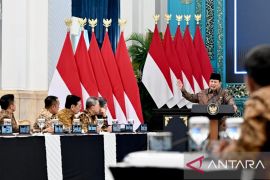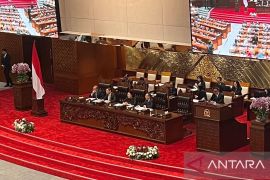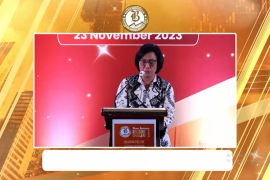The state budget serves as a shock absorber from various disruptions at the global level that potentially puts significant pressure on Indonesia's economy, he explained here on Tuesday.
The Federal Reserve (The Fed) has tightened the monetary policy by hiking the benchmark interest rate followed by several other countries, such as in Europe.
The rise in this benchmark interest rate increases the cost of funds, which in the end affects corporations and the state budget.
Amid the monetary policy tightening by The Fed, the world has also to handle the impact of the conflict between Russia and Ukraine that increases the price of commodities and creates supply disruption.
To this end, the state budget serves as a shock absorber to ensure that Indonesia's inflation is under control and does not increase excessively.
The state budget serves as a shock absorber by ensuring important prices, especially the administered price, which includes the energy price, do not rise drastically.
This effort is undertaken by providing higher compensation and subsidy allocation, Nazara noted.
The ministry has communicated its request to increase the ceiling for subsidy and compensation, so that the energy price issue is not escalated to the House of Representatives (DPR).
In addition to subsidy, the state budget functioned as a shock absorber by maintaining the people's purchasing power through increasing social protection spending, especially for the poor and vulnerable.
The state budget also maintains the economic recovery momentum by providing stimulus to the business world, so that manpower absorption can continue that leads to a decline in unemployment and poverty.
Despite this, Nazara ensured that the state budget's health can be maintained by suppressing deficit that slowly returns to the level below three percent next year.
The state budget deficit in 2020 had reached 6.1 percent of the GDP, as it has to encourage economic recovery, but it continued to decline to 4.47 percent of the GDP in 2021.
For this year, based on Presidential Regulation No. 98 of 2022, the deficit stood at 4.5 percent of the GDP and, in the year end outlook, it is estimated to reach 3.92 percent of the GDP.
"We strive to make the state budget healthier. This became a good path, so that the state budget can fulfil the mandate of Law No. 2 of 2020, specifically, deficit at below three percent," he remarked.
Related news: Inflation to reach 3.5--4.5% this year, Finance Ministry predicts
Related news: Fed's 'aggressive' interest rate hike will affect global economy
Translator: Astrid F H, Fadhli Ruhman
Editor: Rahmad Nasution
Copyright © ANTARA 2022












